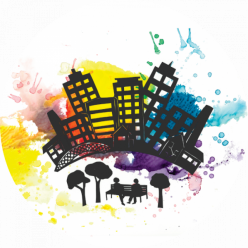“Does It Really Ever Add Up to Anything? Who Is Listening?”
— Cass Henry
Community participant Cass Henry, who participated in creating the first performance of the pilot project for Transforming Stories, Driving Change, shares important questions about what effect this work actually has in the world. They are questions the research team will take up in the next phase of the project, in consultation with community participants who are working hard to make their voices heard.
Participating in this project has been a dual-punch for me. It has been a joy — to interact with my peers, to create a piece that is show-worthy, to perform and experience both the jitters and the post-performance-high. It has also been disastrously heart-breaking — to put so much energy into something and not really know that it will affect any form of change in the immediacy, to know that the next time I interact with a social service I am still likely to face the same problems I have faced previously, to expect that those in positions of power who have seen our work all agree it is though-provoking, but will it actually matter when policy is more of a financial numbers game than a human interest process?
I hesitate to think some of these thoughts and certainly to claim ownership of them by writing about them, because the process of creating our piece for Transforming Stories, Driving Change was truly a dream. I felt like a VIP who was coming to the table with all the knowledge and this research team was providing us with the tools (art) to squeeze out as much of that knowledge as I was willing to share. I felt respected, honoured, and truly inspired during the workshop phase of the process. When it came time to perform our work-in-progress, I felt treated like a real professional — we were fed, given time and space to practice, and we were financially compensated for our time. I have not previously (or since!) had such an amazing experience as a research participant, where I felt my integrity was upheld at every single turn. I highly recommend to anyone who has the opportunity to participate in this project that they take it!
But at the end of the day, tired from hours of work, practicing, performing and wrap-up discussion, I walk away wondering — does it really ever add up to anything? Who is listening?
We end our performance with the words “We need to talk.” And that couldn’t be more true. But when we leave our audience with their memory of our performance, that is the end of the conversation for us. We are still not invited to talk in other platforms. Our voices are given a momentary volume burst, before once more being silenced. Those with the power are making decisions that effect our daily lives, but rarely ever ask for our input or feedback in a meaningful way.
So do I write a review about my experience, about how lovely the researchers were, about how wonderful it was to be able to perform in front of students in the field and hopefully give them a different perspective of the system than they might find in their textbooks, about how empowered I felt in the moments after walking off stage after each performance …..?
Or do I write about how I really feel, about how I wonder whether this research ever informs true change? Are we merely stuck in the same rutted track, forever pushing against the edges, but in the end, succumb to the all-mighty dollar, sinking back once more to the path of least resistance?
